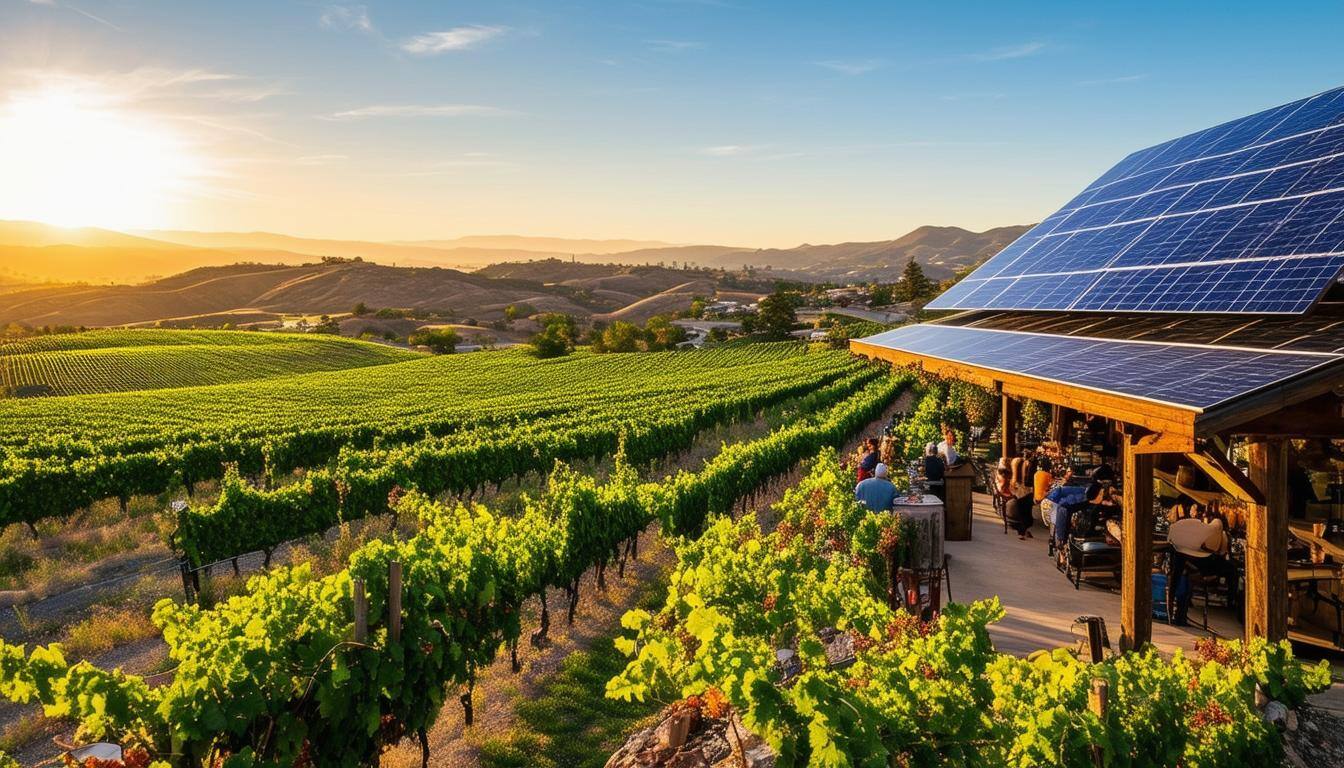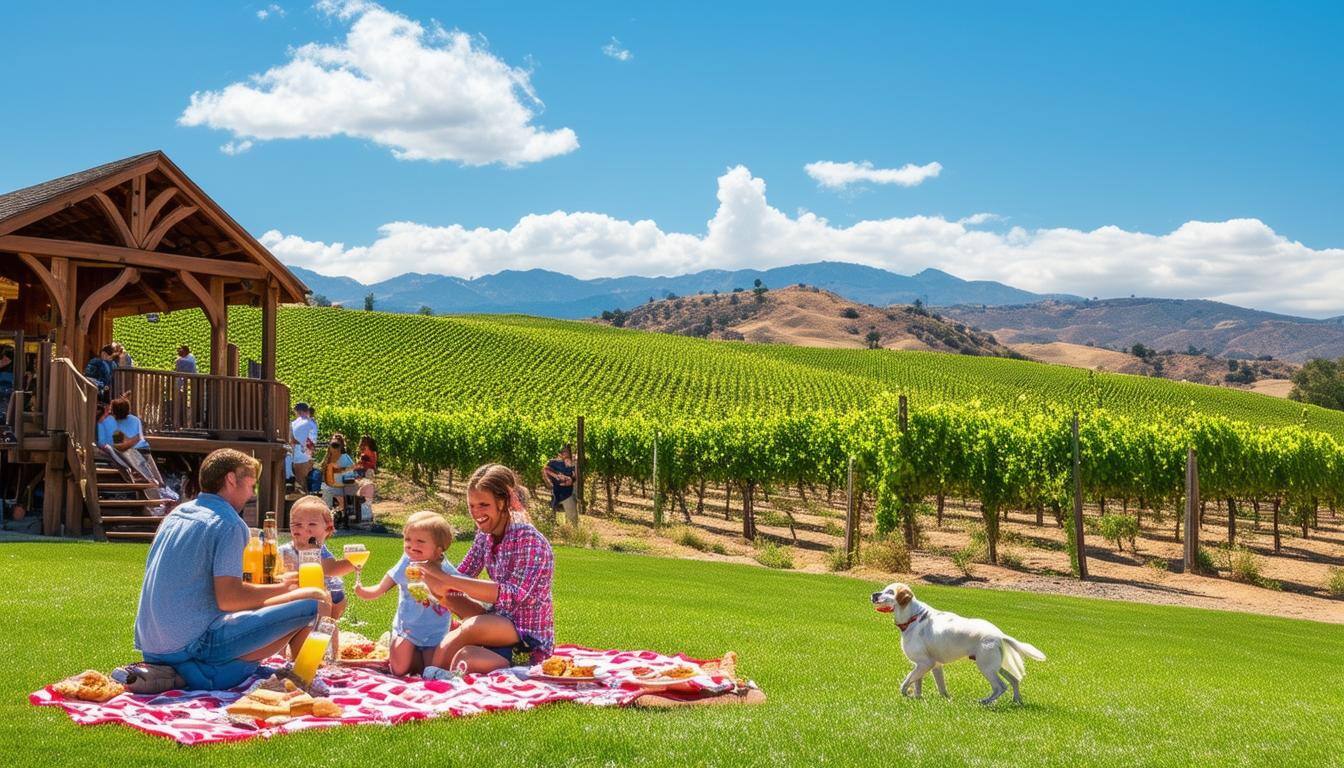Sustainability in Temecula: Wineries Leading the Eco-Friendly Movement

As the world shifts toward more sustainable practices, Temecula Wine Country is stepping up to lead the eco-friendly movement. Known for its beautiful landscapes and award-winning wines, this Southern California gem is also home to wineries dedicated to reducing their environmental impact.
In this blog, we’ll explore the innovative ways Temecula wineries are embracing sustainability, highlight leaders in the movement, and provide tips for wine lovers who want to support eco-friendly practices.
Why Sustainability Matters in Wine Country
Sustainability is critical in the wine industry because winemaking is deeply tied to the land. Every aspect—from farming practices to packaging—affects the environment. Sustainable practices not only protect the planet but also produce healthier vines and better-quality wine.
Key Benefits of Sustainable Wineries
• Environmental Preservation: Minimizes water usage, reduces carbon emissions, and protects local ecosystems.
• Healthier Wines: Organic and biodynamic practices result in wines free of synthetic chemicals.
• Long-Term Viability: Ensures the land remains fertile and productive for future generations.
Sustainable Practices in Temecula Wineries
1. Organic and Biodynamic Farming
Many wineries in Temecula are transitioning to organic or biodynamic farming practices. This includes avoiding synthetic pesticides, using natural compost, and encouraging biodiversity in the vineyard.
• Example: Lorimar Winery has implemented organic farming techniques to enhance soil health and vine quality.
2. Water Conservation Efforts
Water is a precious resource, especially in Southern California’s dry climate. Wineries are adopting efficient irrigation systems, such as drip irrigation, to reduce water waste.
• Example: Leoness Cellars utilizes advanced irrigation technology to precisely deliver water to vines, significantly reducing their water footprint.
3. Renewable Energy
Solar panels are becoming a common sight in Temecula Wine Country. Many wineries now use renewable energy to power their operations.
• Example: South Coast Winery Resort & Spa has invested in solar energy to reduce reliance on fossil fuels and lower carbon emissions.
4. Eco-Friendly Packaging
Wineries are moving toward sustainable packaging options, such as lightweight bottles, recycled materials, and reusable containers.
• Example: Callaway Vineyard & Winery offers refillable wine growlers, encouraging customers to reduce waste.
5. Sustainable Tourism Practices
Many wineries are designing their tasting rooms and events with sustainability in mind, such as using locally sourced food, reducing single-use plastics, and encouraging recycling.
• Example: Ponte Winery has created a zero-waste environment in their tasting room and restaurant by focusing on composting and recycling.
Temecula Wineries Leading the Way
Wilson Creek Winery
• Sustainability Highlights: Wilson Creek has adopted eco-friendly practices like composting, water recycling, and energy-efficient operations.
• Why Visit: Their commitment to the environment extends to their family-friendly atmosphere, making it a great stop for conscious travelers.
Vindemia Vineyard & Winery
• Sustainability Highlights: Vindemia practices solar-powered winemaking and minimal intervention in their farming methods to maintain a natural balance.
• Why Visit: Their boutique approach and scenic outdoor tastings provide a serene, eco-conscious experience.
Doffo Winery
• Sustainability Highlights: Doffo Winery supports local agriculture by sourcing materials and ingredients from nearby vendors, reducing transportation emissions.
• Why Visit: Their small-batch wines reflect their dedication to quality and sustainability.
How Wine Lovers Can Support Sustainability
1. Look for Certifications: Support wineries with organic, biodynamic, or sustainability certifications.
2. Bring Your Own Bottle (BYOB): Refill growlers or reusable wine bottles at participating wineries.
3. Reduce and Reuse: Use eco-friendly travel kits, including reusable utensils and cups, when visiting wineries.
4. Support Local: Choose locally produced wines to reduce the carbon footprint associated with transportation.
5. Ask Questions: Inquire about sustainability efforts when visiting wineries—your interest encourages further change.
Why Sustainable Wineries Are the Future
Sustainability is more than a trend; it’s an essential shift in the wine industry. By reducing their environmental impact, Temecula wineries are not only preserving the beauty of the region but also ensuring the long-term health of their vineyards. These efforts produce not only exceptional wines but also a legacy of care and stewardship.
Conclusion
Sustainability is thriving in Temecula Wine Country, with wineries like Wilson Creek, Vindemia, and Doffo leading the way. As more wineries adopt eco-friendly practices, wine lovers have a unique opportunity to support businesses that align with their values. Whether you’re sipping solar-powered wine or enjoying a zero-waste tasting room, every choice contributes to a greener future.
Plan your next trip to Temecula with sustainability in mind and raise a glass to wineries that care for the planet as much as their vines. Cheers to eco-friendly wine adventures! 🍷

